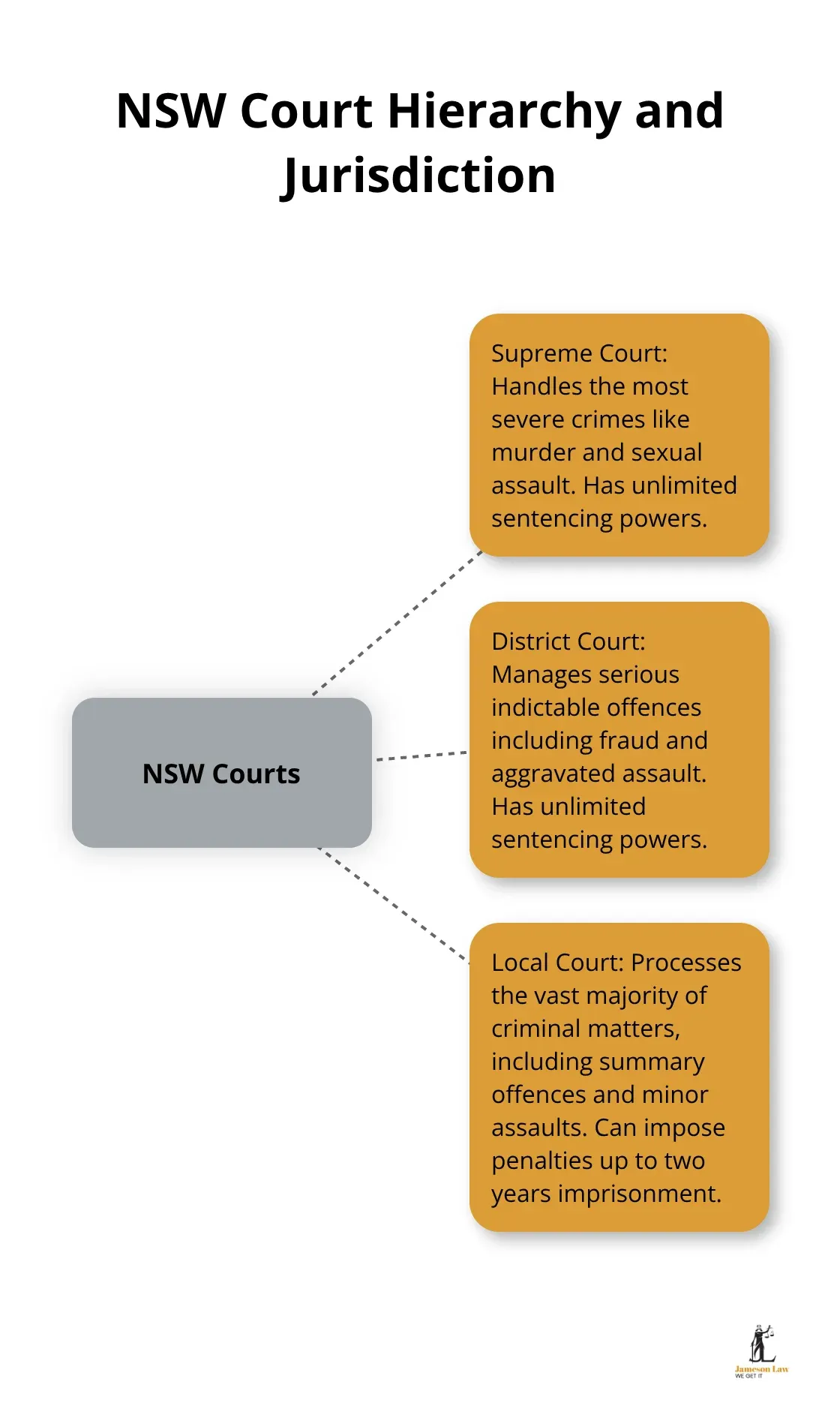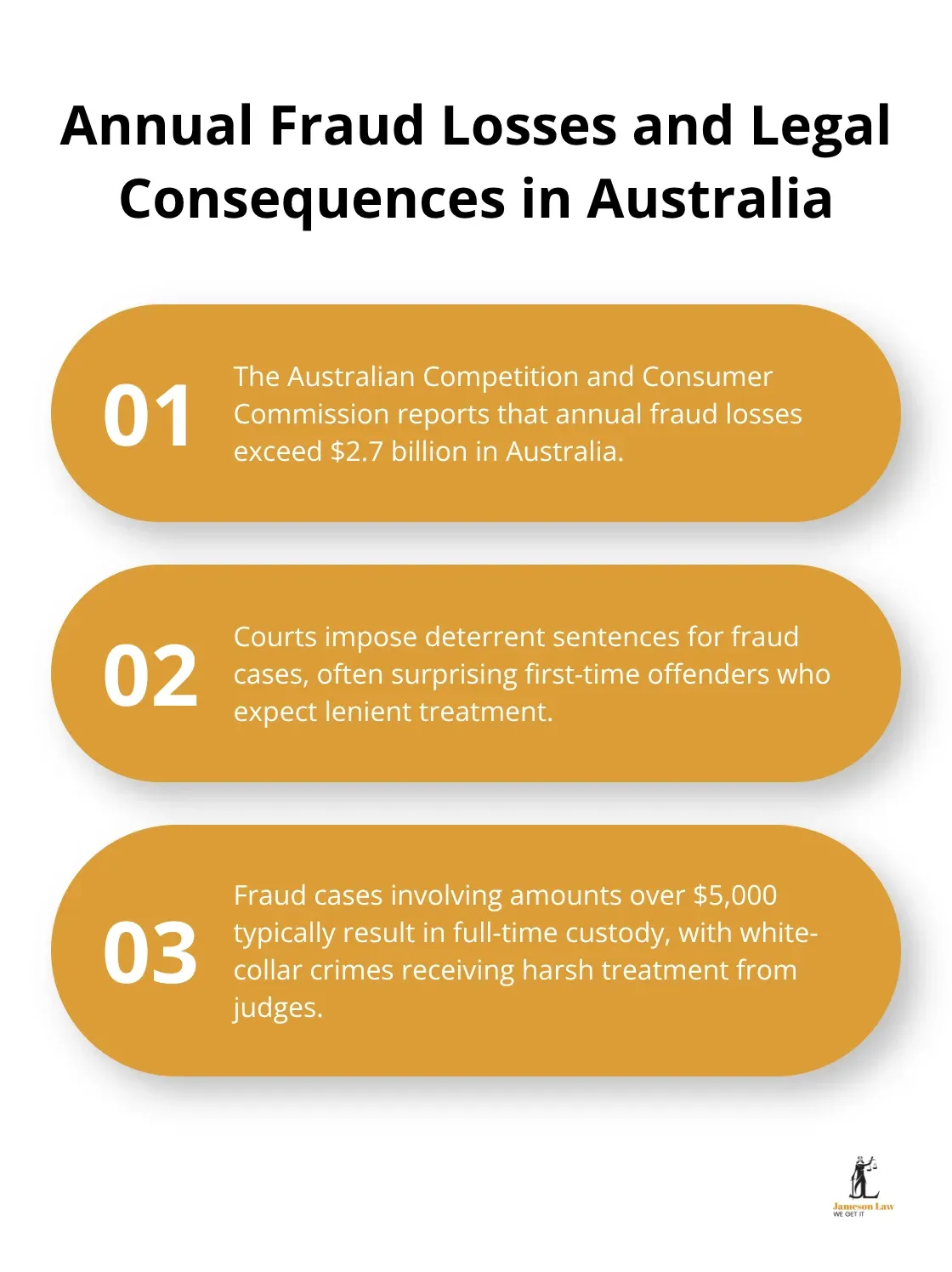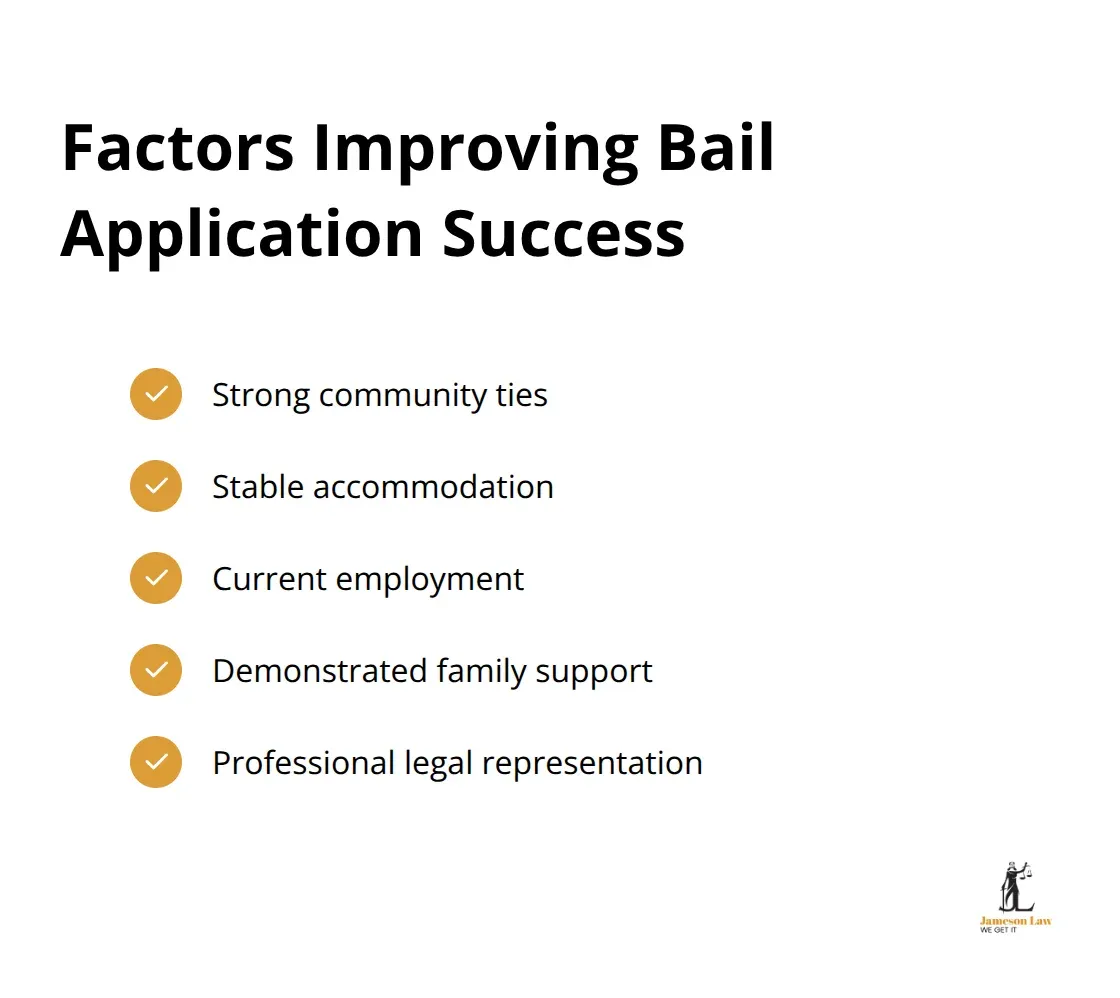Criminal law affects every Australian, yet most people lack basic knowledge about their rights and the legal process. Unlike any criminal law textbook, this guide breaks down complex legal concepts into practical information you can use right now.
We at Jameson Law see clients daily who wish they understood the system before facing charges. This comprehensive guide covers everything from common offences to court procedures, giving you the knowledge to navigate criminal law confidently. For urgent help in NSW, call (02) 8806 0866 or visit our contact page.
How Does Criminal Law Actually Work
Criminal law operates as the government’s tool to prosecute individuals who break society’s rules, with the state bringing charges rather than private parties seeking compensation. Crime rates in parts of regional NSW have trended downward in recent years across several categories, according to BOCSAR data. Unlike civil law where you sue someone for money, criminal law can result in imprisonment, fines or community-based orders. The distinction matters because criminal cases require proof beyond reasonable doubt, while civil cases use the balance of probabilities.
The State Takes Control
When police charge you, the Director of Public Prosecutions decides whether to proceed, not the complainant. This means prosecution can continue even if someone does not want to “press charges”. Police must follow strict procedures during arrest, including explaining your rights and allowing reasonable phone calls. Many people choose to exercise the right to silence during police interviews to protect their legal position. The prosecution must prove every element, while you remain innocent until proven guilty. Read our quick primers on what to do if you are charged and court representation.
Court Hierarchy and Jurisdiction
The Local Court handles most NSW criminal matters, including summary offences such as minor assaults and many traffic offences. The District Court deals with serious indictable offences like aggravated assault and fraud, while the Supreme Court hears the most serious crimes including murder. The Crimes Act 1900 (NSW) and related statutes classify offences and influence which court hears a matter. Magistrates in the Local Court can impose up to two years’ imprisonment per offence in many cases. For a plain-English overview of process, see our beginner’s guide to criminal procedure.

The Path Through the System
The process follows predictable stages: arrest, charging, first mention, plea, then hearing or sentencing. Bail applications usually occur promptly. Outcomes turn on preparation and advocacy. Sentencing options under the Crimes (Sentencing Procedure) Act 1999 (NSW) range from conditional release orders to full-time imprisonment. Courts weigh factors like history, harm and rehabilitation. For tailored guidance, see our resources on sentencing and consequences and bail in NSW.
Understanding how the system works becomes critical when you face specific charges, since different offences carry very different penalties and procedures.
Which Crimes Carry the Heaviest Penalties
Violence Charges Hit Hard
Assault offences range from common assault with maximum penalties of two years to grievous bodily harm with intent that can carry up to 25 years imprisonment. Police can lay assault charges even where injuries are not obvious, and domestic violence matters receive particular attention from prosecutors. BOCSAR reports show assault rates vary by region, and penalties increase where weapons are used or injuries are serious. Self-defence needs evidence that aligns with the law, so legal representation is important for any violence charge. For more detail, see our pages on defence strategy and criminal defences in NSW.
Drug Laws Show Zero Tolerance
NSW drug offences under the Drug Misuse and Trafficking Act 1985 carry severe penalties. Commercial quantities can expose an accused to very lengthy terms. Even small amounts may result in a conviction. Sharing drugs with friends can amount to supply. For trends and enforcement, refer to BOCSAR’s quarterly updates. If you have been charged, read our guidance on recklessness and intent and contact our criminal defence team.
Property Crime Penalties Escalate Quickly
Theft and break and enter offences escalate in seriousness as the value and circumstances increase. Fraud involving significant sums attracts strong deterrent sentences. The ACCC’s Targeting Scams reporting shows losses exceeding billions annually, which informs the courts’ approach to penalty. Learn more about criminal consequences and records and our help with appeals.

Penalties are only one part of the picture. Your rights and early decisions often shape the outcome.
What Rights Do You Have When Police Charge You
Silence Protects Your Defence Strategy
Police must inform you of your rights and allow contact with a lawyer before questioning. Most people are safer saying nothing until they have legal advice. The right to silence reflects that the prosecution carries the burden of proof. You cannot be punished for refusing to answer questions, and a court cannot treat silence as guilt. Anything you say can be used in evidence, even if you think it helps. For next steps, see our checklist for charged persons and how we run police interviews.
Bail Applications Require Strategic Preparation
Bail decisions under the Bail Act 2013 (NSW) turn on risks such as community safety, failure to appear and interference with witnesses. Strong ties to the community, stable accommodation and employment improve your prospects. Conditions manage risks and must be obeyed. Breaches can mean immediate custody. Our team prepares supporting material and appears on short notice. Read about bail strategy in NSW and the practicalities of attending court.

Court Appearances Follow Strict Procedures
First appearances in the Local Court involve your plea or an adjournment to obtain legal advice. Court lists generally start at 9:30 am. Be early, be prepared and dress appropriately. Sentencing requires character references, employment letters and evidence of rehabilitation. Well-prepared defendants generally do better than those who arrive with no documents. For daily listings and how to find your courtroom, see the NSW Online Registry court lists.
Final Thoughts
Criminal law moves quickly. Police interviews, bail applications and first mentions can happen within hours, yet the consequences last years. Early advice gives you options. Evidence can be preserved, bail can be planned and your defence can be mapped out.
We at Jameson Law know NSW courts, prosecutors and procedures. We act fast, protect your rights and put forward the strongest case available. Call our Sydney team on (02) 8806 0866 or make an enquiry via our contact page now.













